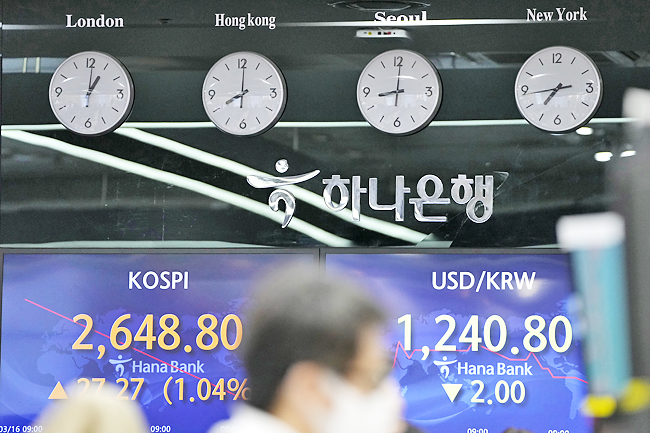LONDON (AFP) – Stocks rallied yesterday, helped by Ukraine peace hopes and China’s pledge to help stabilise markets after recent routs, ahead of a keenly-awaited United States (US) interest rate decision.
Crude prices steadied following Tuesday’s plunge, as the International Energy Agency cut its world oil demand forecast for 2022 but warned that sanctions against Russia over its invasion of Ukraine could spark a global supply “shock”.
The Federal Reserve was yesterday set to raise US interest rates to fight decades-high inflation, with the dollar down against rivals on the widely-expected move.
Ahead of the decision, Hong Kong’s main equities index closed up more than nine per cent after China’s official Xinhua news agency said authorities would maintain capital market stability and adopt measures to handle risks for troubled property developers.
The news lit a fire under the Hang Seng Index, where mainland Chinese tech firms had been reeling from a sell-off this year fuelled by a government crackdown on the sector and fears about possible US sanctions if China were to help Russia in its war with Ukraine.
The decision to lock down the southern Chinese tech hub of Shenzhen to fight COVID-19 had compounded the crisis for the sector.

“China’s state economic policy apparatus is taking significant coordinated steps to support risk sentiment,” said Stephen Innes of SPI Asset Management. “These include… support for overseas listings, engaging with the US on (New York-listed stocks), and perhaps most importantly, suggesting that regulation of its big tech firms will end soon.”
The Hang Seng Tech Index soared by a record of more than 20 per cent.
Eurozone equity indices were up more than three per cent around the half-way stage.
Elsewhere, oil prices steadied after slumping under USD100 per barrel on Tuesday.
Fresh Covid lockdowns in China have triggered demand concerns for the world’s biggest importer of the commodity.
Hopes for an Iran nuclear deal – which could see the country restart oil exports – have additionally weighed on prices, as have signs that Russia-Ukraine ceasefire talks are slowly progressing.
Trading in nickel resumed yesterday on the London Metal Exchange after a lengthy pause linked to the Ukraine crisis but was quickly suspended again after a sharp fall.
Nickel stopped trading, having swiftly breached a new five-per cent daily price movement limit to stand at USD43,995 per tonne on the LME.
Moscow’s invasion sparked market chaos last week owing to supply concerns in Russia, the world’s third biggest producer of nickel – a metal used in stainless steel and electric vehicle batteries.



















































